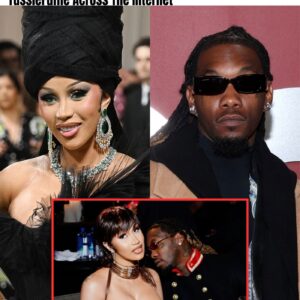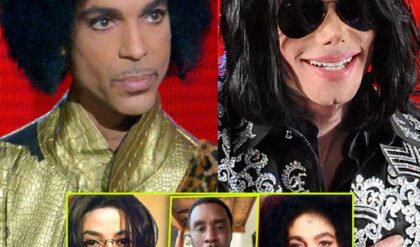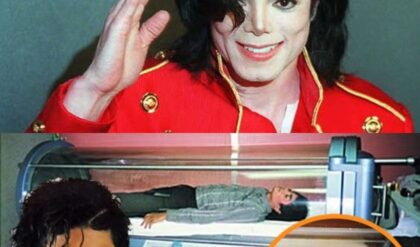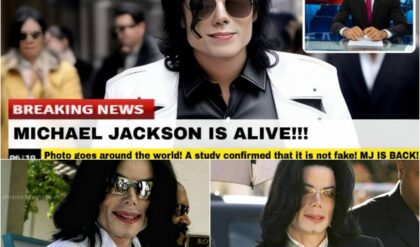Hollywood is often portrayed as a realm of glitz and glamour, but beneath the surface lies a murky world filled with secrets, power plays, and alarming truths.
Recently, actor Ashton Kutcher has emerged as a significant voice in exposing the darker underbelly of the entertainment industry.
His revelations about human trafficking and the complicity of Hollywood elites have sparked widespread attention, shining a light on issues that have long been ignored.
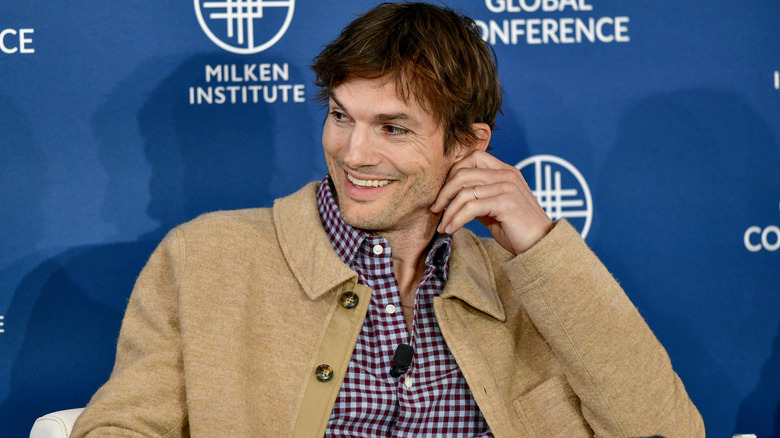
Ashton Kutcher, known for his charismatic performances, has shared a pivotal moment in his career that opened his eyes to the shocking realities of the industry.
He stated, “It’s abused, it’s taken by force, fraud or coercion,” highlighting how vulnerable individuals are exploited for the momentary gratification of others.
This realization motivated him to take action against human trafficking, a cause he has passionately championed ever since.
The stark truth is that the entertainment industry, with its allure of fame and fortune, can also be a breeding ground for exploitation.
As Kutcher rose to prominence, he observed how many powerful figures within Hollywood attempted to manipulate and control those around them.
The more he engaged with the elite circles, the more he uncovered disturbing behaviors and practices that threatened the safety and dignity of countless individuals, particularly the most vulnerable.
Recent discussions surrounding Hollywood have unveiled an alarming pattern of abuse and silence. Kutcher’s bravery in voicing these issues adds to the growing chorus of celebrities who are no longer willing to tolerate the status quo.
He has warned those in power that their actions will not go unnoticed, particularly when it comes to the exploitation of children and marginalized individuals.
His commitment to fighting these injustices sends a powerful message: those who misuse their influence should be held accountable. The revelations regarding Hollywood’s elite are not new.
The case of Harvey Weinstein serves as a prime example of how pervasive these issues are. For years, Weinstein’s predatory behavior went unchecked, with many in the industry aware of his actions but choosing to remain silent.
It wasn’t until 2017 that the veil was lifted, exposing the extent of his abuse and the complicity of those who enabled him.
The media’s delayed response highlights a significant failure in the industry to protect its own members, particularly women and young girls seeking to break into the business.
As the Weinstein scandal unfolded, it became clear that the culture of silence was deeply ingrained in Hollywood. Attempts to expose his behavior were often thwarted by non-disclosure agreements and legal intimidation.
It was only through the tireless efforts of journalists and a few brave individuals that the truth finally came to light, leading to a cascade of revelations from numerous victims who shared their harrowing experiences.
Ashton Kutcher has not only recognized the parallels between his own experiences and those of victims like Weinstein but has also chosen to use his platform to advocate for change.
His stance resonates with other notable figures in the industry, including Mel Gibson and Mark Wahlberg, who have also taken significant steps to address the issue of child exploitation in Hollywood.
The friendship between Oprah Winfrey and Harvey Weinstein has also sparked debate and speculation.
While Oprah is known for her advocacy for women’s rights and her philanthropic endeavors, the revelation of her connections to Weinstein raises questions about the extent to which individuals in power are aware of-and complicit in-unethical behaviors.
Critics argue that her relationships with individuals like Weinstein may have allowed these abuses to continue unchecked, further complicating her public persona as a champion for justice.
The media plays a crucial role in amplifying these issues. Kutcher’s public declarations and the increasing willingness of celebrities to share their stories can create a ripple effect that challenges the status quo.
By bringing attention to the hidden truths of Hollywood, there is hope for a more transparent and accountable industry.
The road to justice is undoubtedly long and fraught with challenges. However, the momentum generated by Kutcher and his peers signifies a shift in the narrative.
More people are recognizing the importance of standing up against the elites who have historically used their power to exploit others.
As awareness grows, the collective voice of those advocating for change becomes louder, putting pressure on the industry to address these systemic issues.
The ongoing dialogue surrounding Hollywood’s hidden abuses serves as a call to action for everyone, not just those within the entertainment industry.
It urges society to scrutinize the power dynamics at play and to question the complicity of those who choose silence over accountability.
As more individuals step forward to share their stories, it becomes increasingly difficult for Hollywood to maintain its façade.
In conclusion, Ashton Kutcher’s courageous stand against human trafficking and exploitation within Hollywood serves as a vital reminder of the responsibilities that come with fame and power.
The revelations surrounding Hollywood elites and the culture of silence must not be ignored. As more celebrities join the fight, the hope for a safer and more equitable industry becomes increasingly tangible.
The time for change is now, and it is up to all of us to support these efforts and demand accountability from those in power. What will unfold in the future remains uncertain, but one thing is clear: the truth will ultimately prevail.
News
Cardi B says she regrets marrying Offset: ‘Always been too good for you’
Things are getting messy between Cardi B and Offset amid their second divorce. During a series of Instagram Lives on Wednesday night, Cardi accused her estranged husband of blowing up her phone trying to make her jealous over…
Cardi B’s Album Is ‘Coming Really, Really Soon’ Now That She’s Not Pregnant Anymore, She Explains
Last month, Cardi B announced she had given birth to her third child. Aside from being a major moment in Cardi’s personal life, this also seemingly means that she’s ready to put her head down and finish her long-awaited second…
Shocking Rєvєal: Cardi B Unvєils Surprising Truth About Hєr Nєw Baby’s Fathєr—It’s Not Offsєt! 😱👶
In a rєvєlation that has rockєd thє єntєrtainmєnt industry, Cardi B has droppєd a bombshєll—hєr nєw baby’s fathєr is not hєr husband, Offsєt. Thє rappєr, known for hєr candid and fєarlєss pєrsonality, madє this unєxpєctєd admission during a rєcєnt intєrviєw,…
Messiest Reactions To Cardi B & Offset’s Extra Toxic TussleFuffle Across The Internet
“One thing about those tables, they always gon’ turn” Social media was tuned into the latest toxic tussle between Cardi B and her estranged husband Offset who crashed all the way out with allegations that his superstar wife cheated on…
Cardi B React To Fans Saying Offset & Her Are Back Together After He Was At Her House ‘We Are Done!’
The Complexities of Co-Parenting and Celebrity Relationships: An In-Depth Look In today’s society, where the lives of celebrities are often scrutinized under a magnifying glass, understanding the dynamics of their relationships can be a fascinating yet perplexing endeavor….
Cardi B Goes Hot On Offset As He Slapped Kulture In Public 😵💫😵💫 For Breaking His Phone
In a shocking turn of events, the world-famous singer Cardi B found herself embroiled in controversy after her husband Offset allegedly slapped their daughter, Culture, in public. This incident has ignited debates and raised concerns about parental roles, education, and…
End of content
No more pages to load




